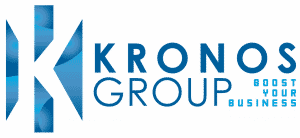Why training for project management is critical in volatile business conditions?

Summary
Companies face constant fluctuations and uncertainties across various aspects of their operations. The factors that contribute to business volatility are market conditions, consumer demand, technological advancements, regulatory policies, and competitive dynamics—presenting significant challenges for businesses to navigate.
Investing in training for project management is essential for businesses operating in volatile environments to effectively manage this volatility. Organisations can implement strategies such as diversifying revenue streams and supply chains, enhancing agility and flexibility, investing in technology and innovation, strengthening risk management capabilities, and fostering a culture of continuous learning and collaboration.
As one of the most impactful strategies for managing business volatility, project management training conducted by project management consultants helps organisations make informed decisions throughout the project lifecycle. Their specialised knowledge, skills, and expertise contribute to optimising time management and improving project completion metrics. By aligning project objectives with budgets and timelines and elevating project management maturity, consultants enable organisations to navigate volatility effectively and achieve greater success in their projects.
The business world operates in volatility, unpredictability, instability, and rapid change that companies have to manage in various aspects of their operations. This encompasses fluctuations and uncertainties in factors such as market conditions, consumer demand, technological advancements, regulatory policies, and competitive dynamics.
Volatility means that conditions in the business environment are highly dynamic and can change rapidly and unexpectedly. This can manifest as sudden shifts in market trends, unpredictable changes in customer preferences, unexpected disruptions in supply chains, or rapid advancements in technology that reshape entire industries.
What are the factors that contribute to business volatility?
Today’s business landscape is characterised by increasing volatility across industries and sectors. Business volatility can be influenced by a variety of external and internal factors. External factors that affect business volatility may include macroeconomic trends, geopolitical events, natural disasters, and changes in regulations or policies. Internal volatility may include organisational changes, strategic shifts, operational changes, leadership transitions and cultural shifts.
Volatility poses significant challenges for businesses as they strive to maintain stability, adapt to change, and sustain growth in unpredictable and turbulent environments. Understanding and effectively managing volatility is crucial for businesses to remain competitive and resilient in today’s dynamic business landscape.
- Rapid technological advancements
The pace of technological innovation continues to accelerate, leading to disruptive changes in business models, products, and services. Emerging technologies such as AI, blockchain, and automation are transforming industries, creating both opportunities and challenges for businesses to adapt and stay competitive.
- Global economic uncertainty
Uncertainty in the global economy, driven by factors such as trade tensions, geopolitical conflicts, and the ongoing impact of the COVID-19 pandemic, contributes to volatility in business environments. Fluctuations in currency exchange rates, commodity prices, and interest rates can affect market dynamics and disrupt supply chains.
- Shifting consumer preferences
Changing consumer preferences and behaviours, influenced by factors such as demographic shifts, social trends, and digitalisation, contribute to volatility in demand patterns. Businesses must continuously anticipate and respond to evolving consumer needs to remain relevant and competitive in dynamic markets.
- Regulatory and policy changes
Changes in regulations, government policies, and compliance requirements introduce uncertainty and volatility into business operations. Businesses operating in highly regulated industries, such as finance, healthcare, and energy, must navigate complex regulatory landscapes and adapt to new compliance standards.
- Supply chain disruptions
Globalisation has led to interconnected supply chains spanning multiple countries and regions, increasing the vulnerability of businesses to supply chain disruptions. Events such as natural disasters, geopolitical conflicts, and trade disruptions can disrupt the flow of goods and services, impacting production, distribution, and overall business operations.
- Competitive pressures
Intensifying competition fueled by globalisation, digitalisation, and the rise of agile startups contributes to volatility in competitive dynamics. Businesses face constant pressure to innovate, differentiate, and adapt to changing market conditions to maintain market share and profitability.
- Environmental and social risks
Growing awareness of environmental and social issues, such as climate change, sustainability, and social justice, introduces new risks and uncertainties for businesses. Increasing stakeholder expectations for responsible business practices and transparency require businesses to address environmental and social risks proactively.
When businesses acknowledge and address the increasing volatility in today’s business landscape, organisations can position themselves to thrive in dynamic and unpredictable environments.
Why is investing in training for project management essential for businesses?
Investing in project management training is essential for businesses operating in volatile environments. Project management provides a structured framework for planning, executing, and controlling projects, enabling organisations to effectively navigate uncertainty and manage change.
In volatile environments where market conditions, customer demands, and competitive landscapes are constantly shifting, having robust project management skills and methodologies in place is crucial for ensuring that projects remain on track and deliver desired outcomes despite unforeseen challenges.
Training equips employees with the necessary skills and tools to anticipate, assess, and respond to risks effectively. By investing in training for project management, organisations can enhance their risk management capabilities, enabling them to identify potential threats early, develop contingency plans, and mitigate risks before they escalate into major issues.
Training for project management fosters agility and adaptability within organisations, enabling teams to respond quickly to changing priorities, market dynamics, and stakeholder requirements. Businesses need to be agile and flexible in their approach to project execution, adjusting plans and strategies as needed to address emerging challenges and capitalise on new opportunities. Project management training provides employees with the skills and mindset necessary to embrace change, pivot when necessary, and drive projects forward amidst uncertainty.
Investing in project management training can lead to improved project outcomes, increased efficiency, and enhanced organisational performance. Well-trained project managers are better equipped to lead teams, manage resources, and deliver projects within scope, budget, and schedule, even in the face of volatility. By investing in the professional development of their project management workforce, businesses can drive productivity, reduce project failures, and ultimately achieve greater success in volatile environments.
Overall, investing in project management training is essential for businesses operating in volatile environments because it enables organisations to effectively navigate uncertainty, manage risks, foster agility, and drive project success amidst constant change. By equipping employees with the necessary skills and tools to excel in project management, businesses can position themselves to thrive in dynamic and unpredictable business landscapes, regardless of the challenges they may face.
What are the strategies for managing business volatility?
Building resilience has become a top priority for organisations aiming to weather the storms of uncertainty and volatility. One key strategy for achieving resilience is through the diversification of revenue streams, supply chains, and customer segments. By expanding their sources of revenue and customer base, companies can mitigate the impact of fluctuations in any single market or segment. Similarly, diversifying supply chains helps reduce dependency on specific suppliers or regions, minimising the risk of disruptions caused by events like natural disasters or geopolitical tensions.
Enhancing agility and flexibility in decision-making, resource allocation, and business processes is essential for organisations to adapt quickly to changing market conditions and seize opportunities as they arise. Agile organisations can pivot swiftly in response to evolving customer needs, competitive pressures, or regulatory changes, enabling them to stay ahead of the curve and maintain a competitive edge.
Investing in technology and innovation is another critical aspect of building resilience in volatile business environments. By embracing emerging technologies and proactively seeking out innovative solutions, companies can anticipate market trends and capitalise on new opportunities before their competitors. Whether it’s leveraging implementing automation to streamline operations or exploring new digital channels for customer engagement, technology plays a crucial role in driving growth and sustainability in today’s fast-paced business landscape.
Strengthening risk management capabilities is essential for organisations to identify, assess, and mitigate potential threats effectively. This includes conducting thorough risk assessments, developing robust contingency plans, and establishing clear protocols for crisis management. By taking a proactive approach to risk management, companies can minimise the impact of unforeseen events and maintain business continuity in the face of adversity.
Fostering a culture of continuous learning, adaptability, and collaboration is essential for navigating uncertainty effectively. In volatile business environments, success often depends on the ability of employees to learn, innovate, and collaborate across teams and departments. By encouraging a growth mindset and promoting a culture of openness to change, organisations can empower their workforce to embrace new challenges and seize opportunities for growth and innovation.
Building resilience in volatile business environments requires a multifaceted approach that encompasses diversification, agility, innovation, risk management, and cultural transformation. By adopting these strategies, organisations can position themselves to thrive in an ever-changing and unpredictable landscape, regardless of the challenges that may lie ahead.
Get in touch with Kronos Group for training for project management
A project management consultant brings a wealth of specialised knowledge, skills, and expertise to the table. Firms can gain invaluable insights that help you make informed decisions at every stage of your project’s lifecycle. This not only optimises time management but also improves key project completion metrics. By tapping into their expertise, you can minimise costly errors and oversights, ultimately saving you both time and money.
Kronos Group’s Project management consulting services are geared towards aligning your project objectives with your budget and timeline. Our consultants work closely with you to understand your specific needs and constraints, ensuring that your project stays on track and within scope. Moreover, they have the experience and know-how to elevate your project management practices to a higher level of maturity. Through comprehensive assessments, they identify areas for improvement and implement strategies to enhance your project management function.
Get in touch with Kronos Group today and elevate your project management function with training from our experts.




